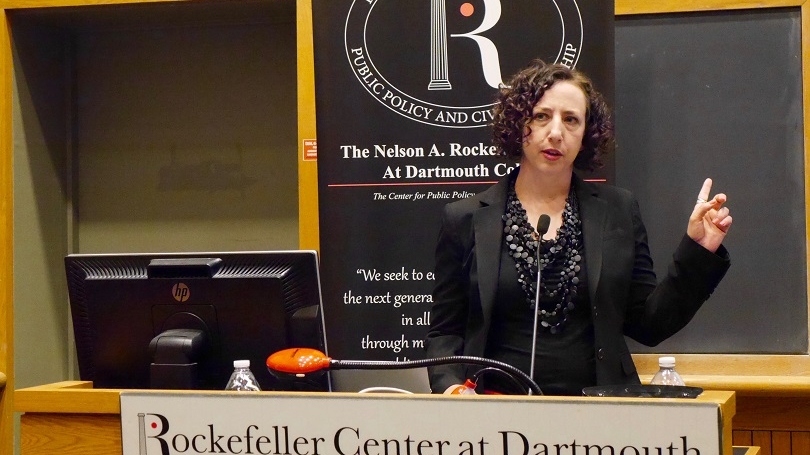
- Public Policy
- Leadership
- Funding
- News & Events
- About the Center
Back to Top Nav
Back to Top Nav
Back to Top Nav
Back to Top Nav
Big industries have more autonomy than ever in determining the chemical composition of their products, sometimes at the risk of consumer safety. Recent controversy has erupted over the presence of potentially harmful chemicals like synthetic estrogen in plastic products such as toddler sippy cups, despite the producers’ claims that they create no health risks to consumers. With producers’ commercial interests representing their first priority, how can consumers be certain that potential exposure to chemicals will cause them no harm?
On Thursday, May 19th, Harvard University’s Nieman Fellow in Watchdog Journalism Mariah Blake spoke about these perverse incentives in a lecture titled, “Chemical Nation: How Americans Became Guinea Pigs in a Vast, Haphazard Chemistry Experiment.” She explored how the chemical industry pioneered the tactics and policy framework that were later used by other industries, including Big Tobacco, to wage war on science and thwart regulation. She drew upon examples from her previous reporting and research to argue that the secret industry-funded war on science has transformed Americans into guinea pigs in a vast, haphazard chemistry experiment.
Mariah Blake is a Murrey Marder Nieman Fellow in Watchdog Journalism at Harvard University. Her writing has appeared in The Atlantic, The Columbia Journalism Review, Foreign Policy, Mother Jones, The New Republic, and numerous other publications. She’s currently working on a book about plastics.
Submitted by Marie Plecha ’16, Rockefeller Center Student Program Assistant for Public Programs
The views and opinions expressed and any materials presented during a public program are the speaker’s own and do not necessarily represent the views and opinions of the Rockefeller Center or constitute an endorsement by the Center.